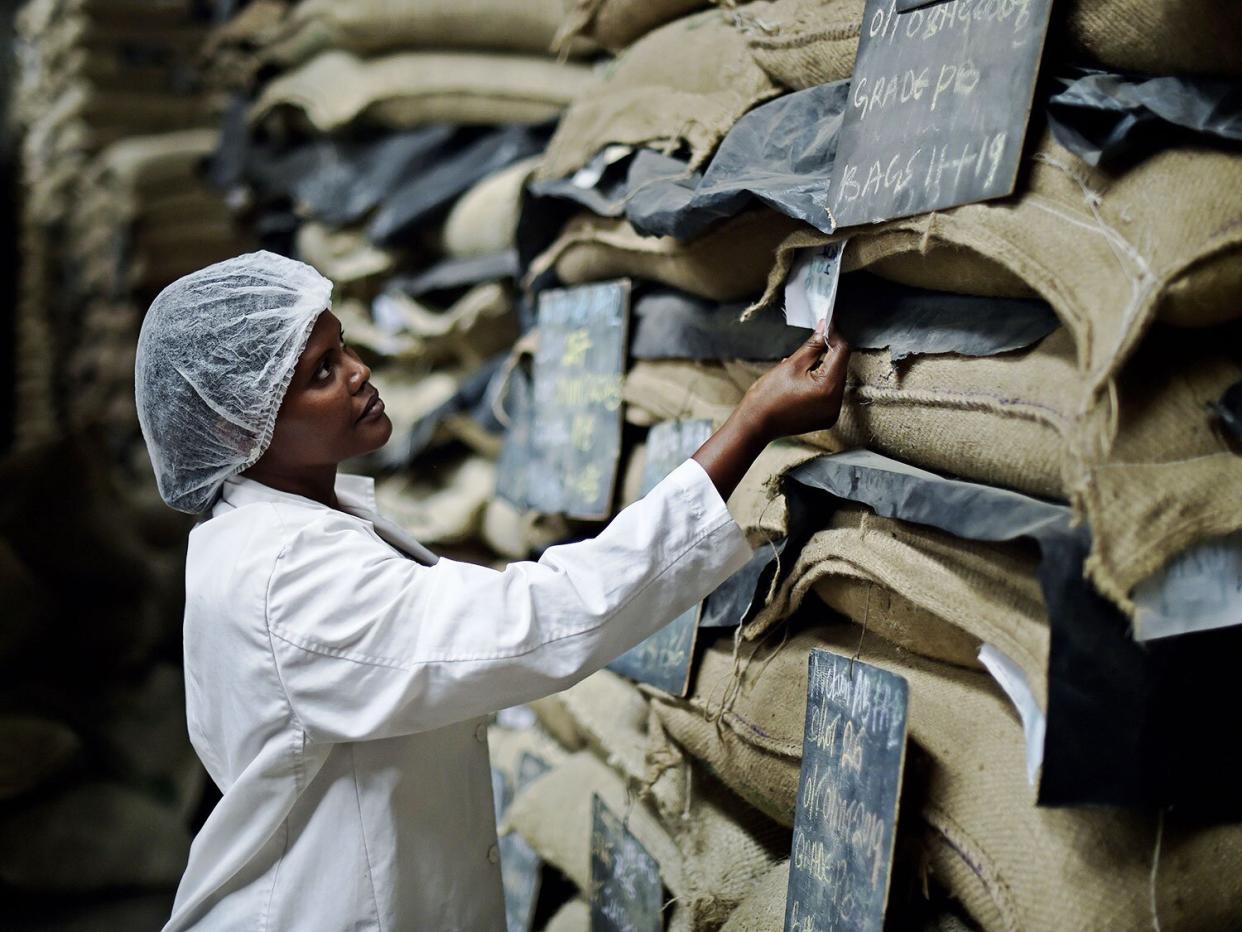Third Wave Coffee Could Keep Africa's Smaller Growers in Business

Carl De Souza / Getty Images
Sure, you could buy a $2 Dunkin Donuts' coffee, but let's face it: you'd rather splurge on a $6 cup of joe sourced from South Sudan's co-ops because that's what your taste buds—and your coffee snob sensibilities—compel you to do. And while you may be hurting your wallet with those expensive blends, your hipster coffee habit is breathing new life into the once-struggling African coffee industry, a new Bloomberg report shows.
In recent years, the African coffee market has suffered. As Bloomberg reports, four African nations dominated the coffee industry in 1975. But flash forward to today, and just two countries—Ethiopia and Uganda—compete in the landscape of the top ten producers in the world. Experts say the continent's coffee production has slowed.
"African production is under threat," Keith Flury, head of coffee research at Volcafe Ltd., told the newswire. He explains that as countries such as Kenya urbanize, coffee farms are sacrificed for modern structures. And, "in other countries such as Rwanda and Burundi, coffee is being replaced with subsistence crops as population grows."
But your (and others) renewed interest in African blends is helping farmers stake their claim in the industry, where cheaper coffee often prevails. "African beans may seem exotic to some coffee drinkers and that piques their curiosity," explained Karl Weyrauch, founder of Coffee Rwanda, which supplies Rwandan beans to the U.S. Additionally, an increased appetite for "single origin" coffee combined with this renewed interest in sub-Saharan beans means the best growth potential lies in serving a more selective market.
According to Bloomberg, African coffees stand out for floral, fruity flavors. And it's the OG home of coffee, too; beans were discovered there some 1,000 years ago.
In recent years, African coffee shipments to the U.S. and abroad have increase by about 37 percent as demand for these blends increases too.
For example, take food merchant Olam International Ltd., based in Singapore: last year, the company paid $7.5 million for East African coffee alone, Bloomberg says.
So, it boils—or brews—down to this: if you dig African blends, it may be worth the few extra bucks to please your taste buds and help an industry and its workers stay in business.

